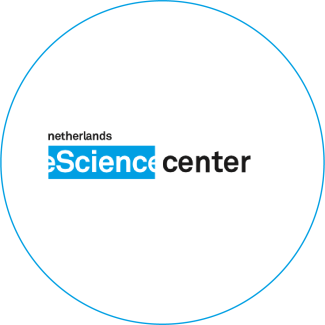Call for Abstracts for the PhD Students Session at CLARIN 2021 is Still Open
After the success of last years' editions, this year's edition will again feature a PhD Students Session. The aim of the session is to enable PhD students to share the next generation of research that is supported by or contributing to the CLARIN infrastructure, and receive feedback on their work from CLARIN experts.
Submissions are welcomed by PhD students:
- who already benefit from using the CLARIN infrastructure in their research;
- whose envisaged project results could contribute to the enrichment of the CLARIN infrastructure (new corpora; new showcases; support for new languages, new formats, etc.); and/or
- who can demonstrate the added value of methodological frameworks for the analysis of language data that CLARIN could support.
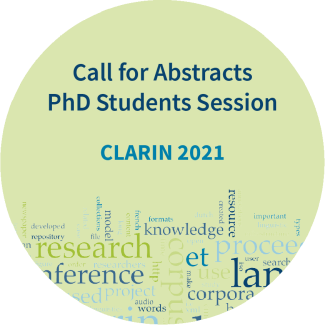
Registration Open for CLARIN Café - One Infrastructure for Many Languages
Monday 31 May 2021, 14:00 to 16:00 (CET), Virtual event
This café will zoom in on various aspects and activities of the CLARIN infrastructure that support multilinguality, such as the and the Knowledge Infrastructure. In addition to this, the event will highlight other European projects and initiatives that address the diversity and richness of languages in Europe, such as the European Language Equality Project. It will also feature a presentation by the initiative European Federation of National Language Institutes; the event will be concluded by a discussion panel where members of CLARIN Board of Directors and the National Coordinators Forum are present.
You are welcome to join the discussion!
Learn more about the café and register
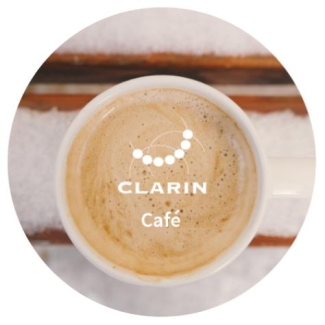
Call for Submissions "Teaching CLARIN in Times of Corona"
CLARIN has launched a special call for submissions of training materials suited for "Teaching CLARIN in Times of Corona". This call aims to acknowledge and showcase the efforts made by teachers, lecturers and trainers throughout the CLARIN network to meet the education needs during the Covid-19 pandemic.
CLARIN calls for submissions of recently developed training materials in any disciplines or topics relevant for CLARIN, provided one or more CLARIN resources were used in the course and referred to in the syllabus.
All relevant submissions will be showcased on the CLARIN website, for the purpose of sharing best practices and examples suitable for reuse. In addition, three submissions will be selected for the Teaching CLARIN award, and will receive the sum of 350 euros each. The award ceremony will be hosted during CLARIN Annual Conference 2021.
The deadline for submissions is 1 June 2021.
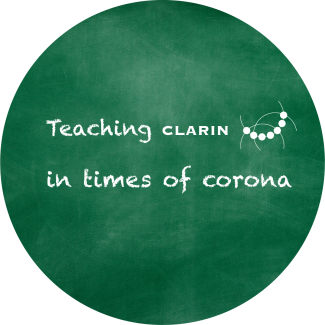
Tour de CLARIN: Interview with Peter Andorfer, Stephan Kurz, and Martin Anton Müller
This month's Tour de CLARIN: Interview is about ARCHE, the Austrian B-centre that is run by the Austrian Centre for Digital Humanities and Cultural Heritage (ACDH). The interview features Peter Andorfer, a research software engineer at ACDH; Stephan Kurz, a German studies scholar working with digital scholarly editing; and Martin Anton Müller, a German philologist.
Read more about Tour de CLARIN
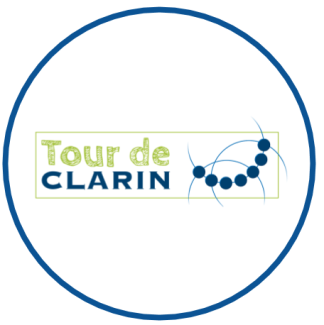
CLARIN Resource Families: Spoken Corpora
The CLARIN Resource Families initiative provides a user-friendly overview of the available language resources in the CLARIN infrastructure for researchers from digital humanities, social sciences and human language technologies.
This month CLARIN highlights the spoken corpora. Corpora of spoken language contain transcriptions of spontaneous or planned speech, such as broadcast news or elicited narratives and dialogues. They are often aligned with the accompanying recordings. They are an invaluable resource for various kinds of linguistic research, such as phonology, conversational analysis, and dialectology. Such corpora are carefully sampled and rich in sociodemographic metadata.
There are 90 spoken corpora in the CLARIN infrastructure, 79 of which contain both the transcriptions of spoken or spontaneous speech and the associated recordings, and 11 only the transcriptions.
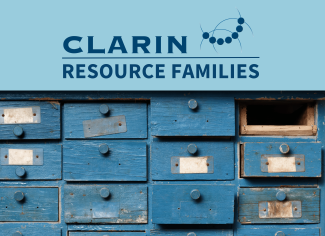
UPDATES FROM THE NATIONAL CONSORTIA
The VeDPH Dataset ‘Cretan Institutional Inscriptions’ in CLARIN-IT
The CLARIN-IT Repository provides the community with a collection of epigraphic records pertaining to the Cretan institutions of the period between VII and I century BC, with insights into the political realities of Crete and their institutions.
The dataset ‘Cretan Institutional Inscriptions’, built by using the EpiDoc Front-End Services, is the outcome of a PhD research project carried out at the Department of Humanities of the Ca’ Foscari University of Venice. It highlights the specificity of each context in the period between the rise of the poleis and the Roman conquest of Crete.
The body responsible for the publication is the Venice Centre for Digital and Public Humanities (VeDPH). Read more
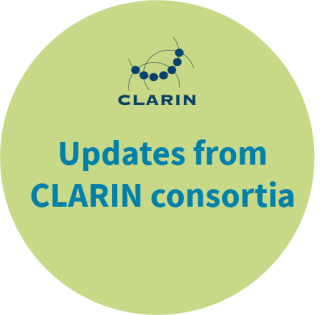
BLOGS
CLARIN Cafés in April, a Short Recap
Read the blog post of the two CLARIN Cafés that took place on 15 and 29 April 2021.
During the CLARIN Café: Drinking Coffee in the Afternoon with Czech CLARIN the two Czech CLARIN Nodes LINDAT/CLARIAH-CZ and The Czech National Corpus showed their unique expertise in combining data, tools and services. Read the full blog
The CLARIN Café on Linguistic Linked Data was specifically devoted to the role that LLD can play in the CLARIN Infrastructure. Read the full blog
Read more about the CLARIN Café initiative

DDM Workshop Summary. Theme Group 2: Working with Multilingual Methods and Data
The workshop aimed to bring together researchers and practitioners with interest and experience in the following areas:
- technical, legal and ethical issues in building non-English multimodal corpora;
- quantitative, qualitative and mixed methods for researching multimodal corpora;
- using multimodal corpora for pedagogical purposes, therapeutic/medical purposes (e.g. sign language, language impairments, brain damage, etc.).
The 2-hour virtual session was held on June 22 2020 and was facilitated by Miguel Escobar Varela (National University of Singapore) and Darja Fišer (CLARIN and University of Ljubljana), supported by the Disrupting Digital Monolingualism workshop represented by Kristen Schuster and Paul Spence.
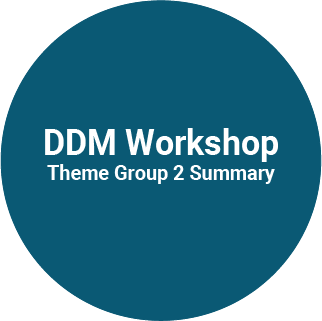
TRAINING & EDUCATION RESOURCES
DigiLing e-Learning Hub: e-Courses for Digital Linguistics
If you are looking for new teaching material in Digital Linguistics, check out the DigiLing e-learning resources available in the CLARIN VLO. The resources have been developed in the DigiLing project on seven core subjects: Introduction to Text Processing and Analysis, Introduction to Python for Linguists, Computational Lexicology and Lexicography, Localization Tools and Workflows, Post-Editing Machine Translation, Mining and Managing Multilingual Terminology, Variability of Languages in Time and Space. The data format is .mbz and can be integrated with any e-learning environment running in Moodle.
Visit the DigiLing landing page
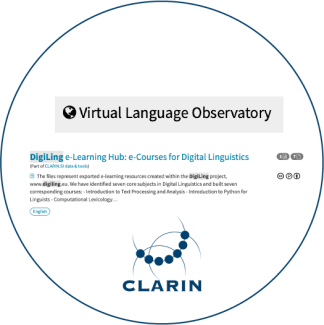
UPSKILLS: Questionnaire About Research-based Teaching
Within the framework of the UPSKILLS project, we invite researchers who do research and teach in linguistics and other language-related disciplines to respond to a questionnaire about their research-based teaching practices. It should take about 10-15 minutes to complete. The insights collected via this questionnaire will be used in the UPSKILLS project to develop more specific guidelines for the integration of ongoing research activities into teaching.
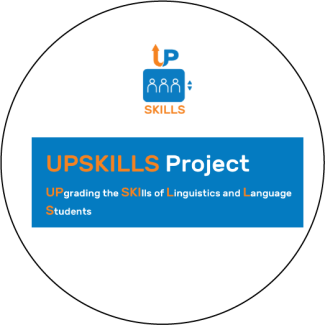
WATCH THIS!
CLARIN2020: Repositories and Workflows
Watch the moderator-led papers session on "Repositories and Workflows'' chaired by Jan Hajič and Martin Mathiessen. This session took place on 6 October 2020 during the first virtual conference day of CLARIN2020. For more detailed information visit the CLARIN2020 programme page and Book of Abstracts.
EVENTS & CALLS
The Third European Language Resource Coordination (ELRC) Workshop
10 June 2021, Virtual Event, 9.30 - 12.30 (CEST)
ELRC is an initiative of the European Commission with the aim of raising awareness among Public Administrations (PAs) towards good practices in language data management, to encourage the use of machine translation systems, and also to contribute to the collection and pooling of language resources among different PAs in order to improve the performance of the eTranslation machine translation engine.
This third ELRC workshop will involve public administrations and small and medium-sized enterprises (SMEs), which now have free access to the Commission's translation engine. During this important opportunity to bring together the supply and demand for language technologies for Italian, the CLARIN-IT National Coordinator, Monica Monachini, will take part in a session dedicated to the creation, management and sharing of linguistic data.
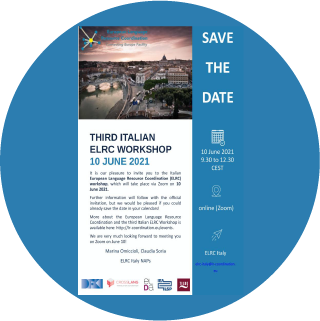
SSHOC Workshop: Data Citation in Practice
15 June 2021, Virtual event, 13:30 - 15:00 (CEST)
This SSHOC workshop aims to present solutions for efficient data citation from three different perspectives:
- Dieter Van Uytvanck will speak about citations in the context of the CLARIN Virtual Collection Registry;
- Pavel Stranak will address issues with citations in Czech LINDAT Center; and
- Michel Jacobson and Nicolas Larrousse will present the specifics of citing oral resources in French CoCoon Center.
Apart from addressing general considerations with regards to citing practices, the speakers will also talk about the challenges linked to practically making citations, and suggest some approaches to overcome them.
The workshop will provide ample time for discussion and hands-on exercises where the participants will be able to observe some consequences of using good or bad citation protocols.
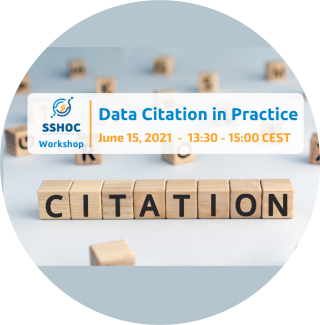
Registration Open for EOSC Symposium
15-18 June 2021, VIrtual event
You are welcome to register for the Symposium 2021. Registration is free of charge.
The EOSC Symposium focuses on the key priorities of the implementation of EOSC for 2021-22. The symposium also offers an inclusive platform for all stakeholders to share objectives, visions, activities and results in order to shape the future of the EOSC. The Symposium is organised by the EOSCsecretariat.eu project as part of its support to the EOSC Governance The full programme is available online.
Have a look at the programme & register
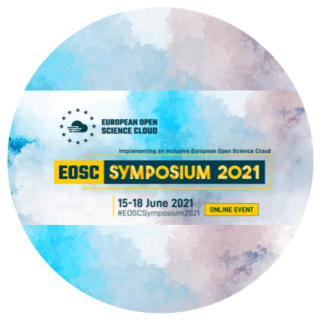
Lancaster Summer Schools in Corpus linguistics 2021: Open sessions
21-25 June 2021, Virtual event
As part of the Lancaster Summer Schools in Corpus Linguistics 2021, open sessions are offered to anybody who is interested in the topic.
These open sessions include:
- a series of lectures on different topics and applications of corpus linguistics;
- a practical session on using #LancsBox to analyse different sets of language data;
- a symposium on Innovation in corpus linguistics.
The sessions will be delivered through MS Teams, an online platform used to deliver lectures and practical sessions.
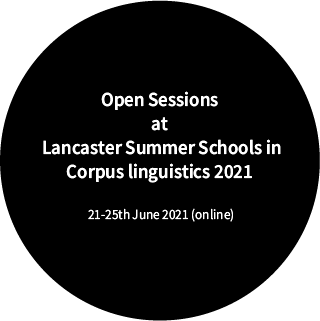
Registration for ICTeSSH 2021 is now open
28-30 June 2021, Virtual event
Registration for the International Conference on ICT enhanced Social Sciences and Humanities (ICTeSSH) 2021 is open. The conference will bring together SSH researchers, computer scientists, informaticians, publishers, librarians, vendors of research ICT tools, SSH decision makers and others. The event is free of charge.
Register here
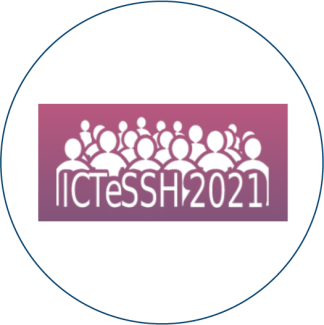
CLIN 31- Call for Short Abstracts for Poster Presentations
9 July 2021, Virtual event
The 31st Meeting of Computational Linguistics in The Netherlands (CLIN 31) has been moved to a virtual format. With the move to a fully virtual event, additional submissions for poster presentations are welcomed.
Researchers are invited to submit short abstracts in English of up to 300 words (excluding references) describing work on all aspects of computational linguistics and language & speech technologies and applications. Contributions that focus on Dutch language processing (and its applications) are especially welcomed.
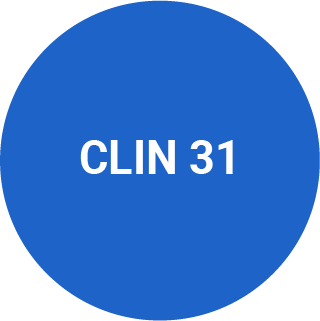
Call for participation Corpus Linguistics Conference 2021
13-17 July 2021, University of Limerick, Ireland
The online registration for the 11th International Corpus Linguistics Conference 2021 (CL2021) is open.
The International Corpus Linguistics Conference is a biennial conference that explores corpus approaches to language research. This conference encompasses discourse studies, technology-mediated communication, language acquisition, literature, lexicography, speech, sociolinguistics and computational linguistics, among others.
The theme of this year's conference is Corpus Linguistics in Changing Times: Challenges and Solutions.
The organizers hope to run CL2021 as an on-campus conference but in the event that this cannot happen, it will run as an online conference.
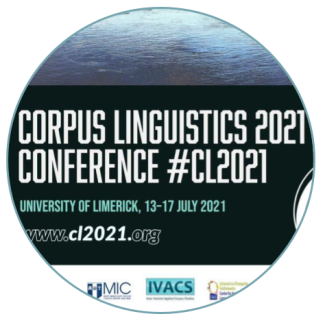
Registration open for ESSLLI 2021
26 July - 13 August 2021, Virtual event
ESSLLI is a yearly recurring event, which has been organized since 1989. ESSLLI 2021 is organized under the auspices of the Association for Logic, Language and Information (FoLLI). The ESSLLI Summer School provides an interdisciplinary setting in which courses and workshops are offered in logic, linguistics and computer science. The registration includes access to all online sessions, including courses, invited talks, the student session, workshops, and evening lectures.
Registration deadline: open until the 25th of July, as long as the maximum number of participants is reached.
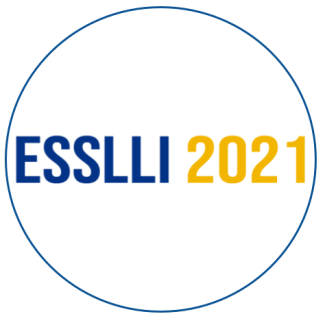
Call for Abstracts for the EGI Conference 2021 now open
19-21 October 2021, Virtual event
The call for proposals for the EGI Conference 2021: Beyond the Horizon – Shaping the Digital Future opened on 19 May. Submissions in the following formats are accepted:
- Long presentations (25 mins)
- Short presentations (15 mins)
- Posters
- Demonstrations (30 mins)
- Workshops/Sessions (90 mins)
The submission deadline is 1 July at 23:59 CEST
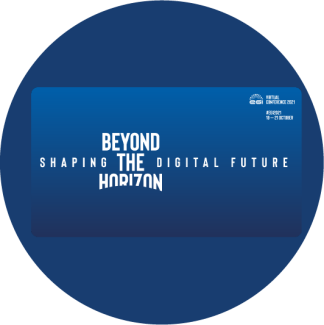
JOB OPENINGS
Full Professor of Artificial Intelligence & Language, Speech and Communication
Radboud University Nijmegen, Nijmegen, the Netherlands
The Centre for Language Studies (CLS) of the Faculty of Art at Radboud University Nijmegen is looking for a full professor of Artificial Intelligence & Language, Speech and Communication.
As a full professor you will further the mission of CLS, boosting AI research at CLS such that research on language, speech and communication will inform the field of Artificial Intelligence, and vice versa.
The deadline for applications is 11 June 2021
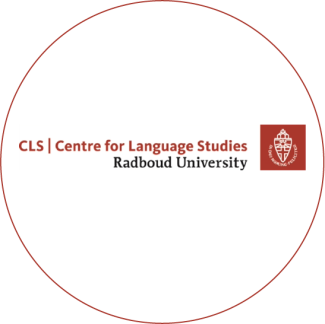
Team Manager for the Social Sciences & Humanities domain
The Netherlands eScience Center
Tasks: managing, coaching and developing staff through effective situational line management, community outreach and representation. Candidates should have proven academic capabilities (PhD or equivalent), at least 6 years of experience, excellent presentation skills as well as the ability to network and build strong relationships with stakeholders.
Deadline for application 18 June 2021
